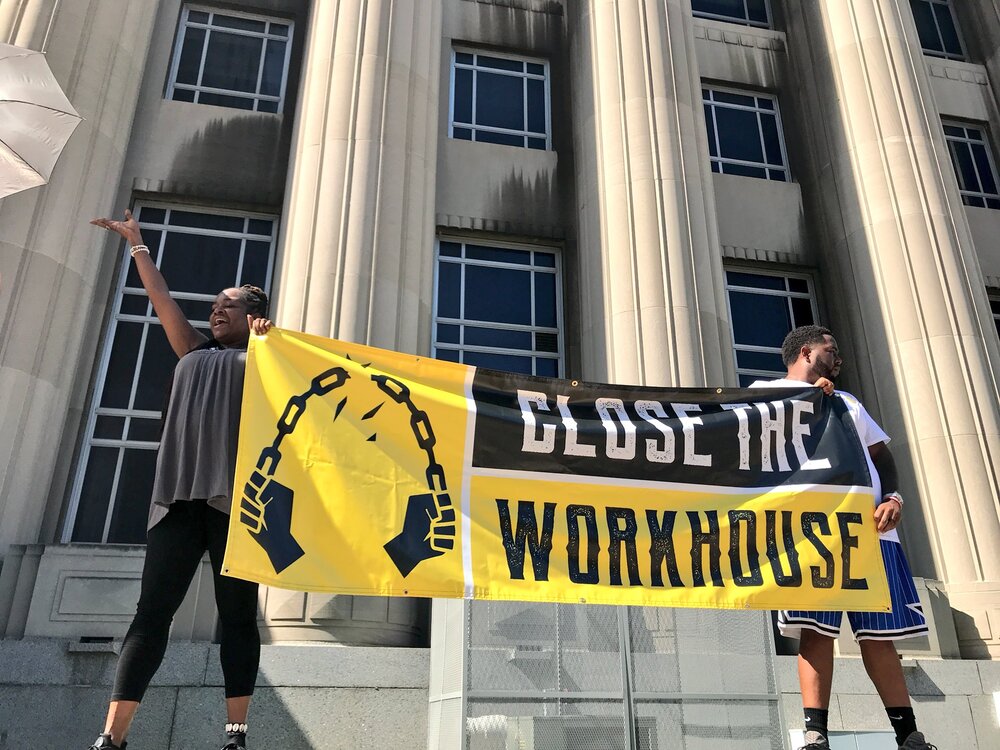The fate of the most notorious jail in St. Louis is nearly sealed. On July 17, all 28 members of the city’s legislative Board of Aldermen voted to close the medium-security institution known as “the Workhouse.” The bill now goes to Mayor Lyda Krewson’s desk for approval. If she vetoes it, the Board would have to override the veto with at least two-thirds support—and the numbers appear to be there to make that happen.
The success of this initiative is due in large part to the activism of Close the Workhouse, a St. Louis coalition, including people formerly incarcerated in the jail, that has been fighting for this for over two years. As Filter previously reported, the campaign researched and wrote its own detailed proposal for how the city could close the jail, from which the city’s bill drew heavily.
The Workhouse, built in 1966, is one of two jails in St. Louis, located on the city’s outskirts. Currently, it holds 90 people with a capacity for 436; 99 percent of people held there are on pretrial detention, meaning they are not convicted of a crime, and 82 percent are Black men.
The COVID-19 pandemic has added to the urgency of the campaign’s demands, as jails and prisons throughout the US see severe outbreaks. The Workhouse’s population has dropped due to efforts to protect people from coronavirus, as well as a state Supreme Court decision against the city’s bail practices.
The city’s bill, if it becomes law, will “plan” to close the jail by December 31. Current employees would be moved to other city agencies. The city would create a new fund and program to assist formerly incarcerated people and local communities hurt by violence and poverty. Funding for this would come directly from jail’s current annual budget of nearly $8 million.
“If we use this money in a more effective and efficient manner, I think we will see a safer and better city,” said city board President Lewis Reed, who introduced the bill. “And I think we’ll see the people who have formerly been detained coming out and leading productive lives.”
But the fight in St. Louis is not over—it is just changing shape. Advocates are pushing to make sure this apparent victory isn’t merely a symbolic one. The city’s bill doesn’t seek to demolish the jail, and says instead that it might be repurposed for another public use. It could also be sold to another owner.
Close the Workhouse wants to make sure the facility is indeed shut down by the end of 2020, and no later. The campaign also wants to prevent the Workhouse from being repurposed as a detention facility by a new owner, and to prevent the city from building another jail to replace it.
“We’ve long believed that jails, prisons and police do not keep us safe—investment in people and communities does,” said Inez Bordeaux, a lead organizer for Close the Workhouse. “We adamantly believe that the Workhouse is irredeemable and should not be repurposed. It is time to do right by St. Louis and reinvest in communities that have been harmed by failed, racist systems like the Workhouse.”
Image courtesy of Close the Workhouse STL.





Show Comments